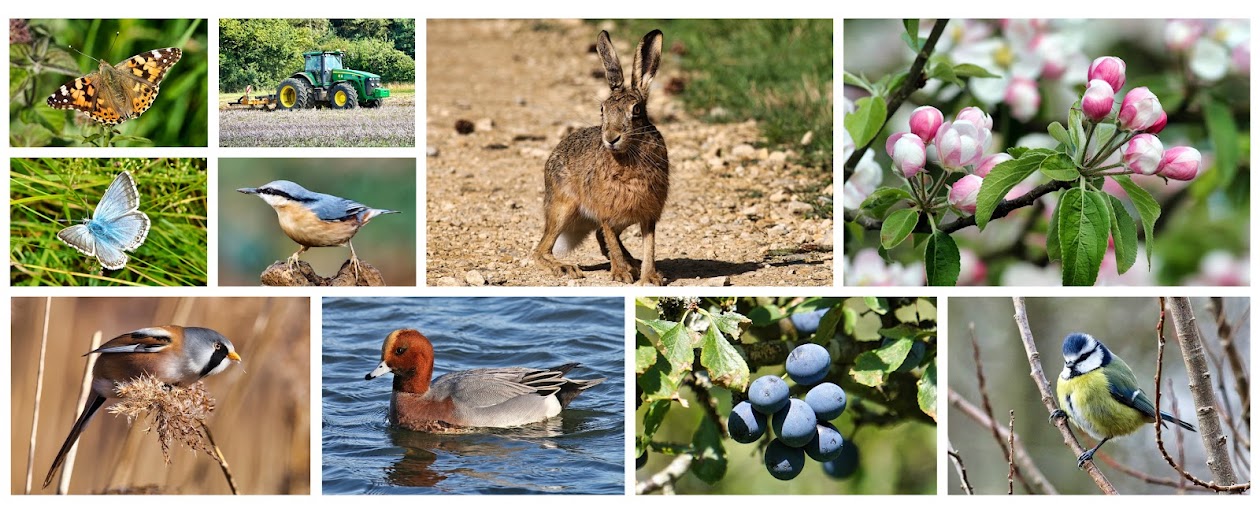At first I thought it was the Black-tailed Skimmer as I couldn't see any yellow edging on the side of the body that I would expect to see with a Broad-bodied Chaser and I didn't think it was quite fat enough.
I have seen some images of a Black-tailed Skimmer that didn't have very much black on the tail end also, so confused as ever. However I have been advised by Simon (see Comments section) that it is indeed a Broad-bodied Chaser.
Since then my learned friend John from Hedgeland Tails http://hedgelandtales.blogspot.co.uk
(see comments section) has I believe, correctly identified the species as a Scarce Chaser (Libellula fulva)
Thanks John.
 |
| Sony Alpha 6000. E55-210mm lens. 1/400 at f8. 210mm. ISO250 |






Those are beautiful pictures, but alas I think that is a male broad bodied chaser! Which are indeed a common riverside species. Black tailed skimmers have a yellow abdomen with black markings
ReplyDeleteThanks Simon.
Deletelovely Roy; nature in close-ups. Carole at snaphappyonline.blogspot.com
ReplyDeleteThanks Carole.
DeleteHijk staat er geweldig mooi op hij kijkt je gewoon aan.
ReplyDeleteHey Roy... No matter the name I am always fascinated by there intricately patterned wings and there big eyes!!
ReplyDeleteNice shot's
Grace
Thanks GG, yes they are amazing creatures.
DeleteJust catching up on your posts Roy, The Silver-washed fritillarys photos are lovely, had never heard of this butterfly so had a look on the distribution map, it would be very rare for me to see one all this way up in Yorkshire :(
ReplyDeleteLove a good sheep, fancy getting the book "Know your sheep" I would have one as a pet !
We do get chasers on the pond at the park, only seen one so far this year...your photos are stunning, they don't still for long..
Amanda xx
Thanks Amanda, yes the SW Fritillary are a bit particular about their habitat.{:))
DeleteThe sheep would keep your garden nice and tidy.{:))
Hi Roy,
ReplyDeleteGreat images, but I have to disagree with Simon, I'm afraid, as I think the dragonfly is a Scarce Chaser. A male Broad-bodied Chaser is a lot 'fatter', for want of a better word and also has yellow markings to the side of its abdomen. The dark wing base of your dragon separates it from a Black-tailed Skimmer. The BBC also tends to avoid riverine habitats, prefering lakes and ponds. Pretty sure your photo's show a Scarce Chaser, great dragon and a great spot!
J
Follow me at HEDGELAND TALES
Thanks John, I can see that you are absolutely right about the ID. {:))
DeleteBonsoir Roy, quelle belle série, bravo. Ces yeux sont superbes !!!!
ReplyDeleteDésolée ne pas pas passer plus souvent, je suis très occupée.
Bises
Merci Nathalie, c'est une période très occupée pour les observateurs de la nature.
DeleteFabulous pictures Roy and my thanks to John for identifying it.
ReplyDeleteIt just goes to show, we don't do this because it is easy! It's always good to get a little help from our freinds.
ReplyDeleteCertainly is Steve and I need a lot sometimes.{:))
DeleteHello Roy!
ReplyDeleteGreat pics of an male SS who served obviously quite a number of ladies!
Funny we've got the same species on ours blogs!
Is is "scarce" in England?!!
Congrats for this catch!
Keep well!
Hi Noushka, thanks.
DeleteYes its listed as "Scarce' in the British Red Data Book.
Geee!
ReplyDeleteI meant SC!!!
Yes I know you did Nouhska.
DeleteThe 'S' is close to the 'C' on the keyboard.
My keyboard has a mind of its own sometimes.{:))
…beautiful detail, Roy! You must have stalked him carefully to get so close!
ReplyDeleteThanks Kelly, I was exceptionally lucky with this one. I was walking slowly along a river bank and just happen to see it on a dead plant.
DeleteAbsolutely beautiful pictures, I love them! Dragonflies are one of my favourite insects, and they always photograph so nicely. - Tasha xxx
ReplyDeleteThanks Tasha.
DeleteThanks Nora.
ReplyDelete